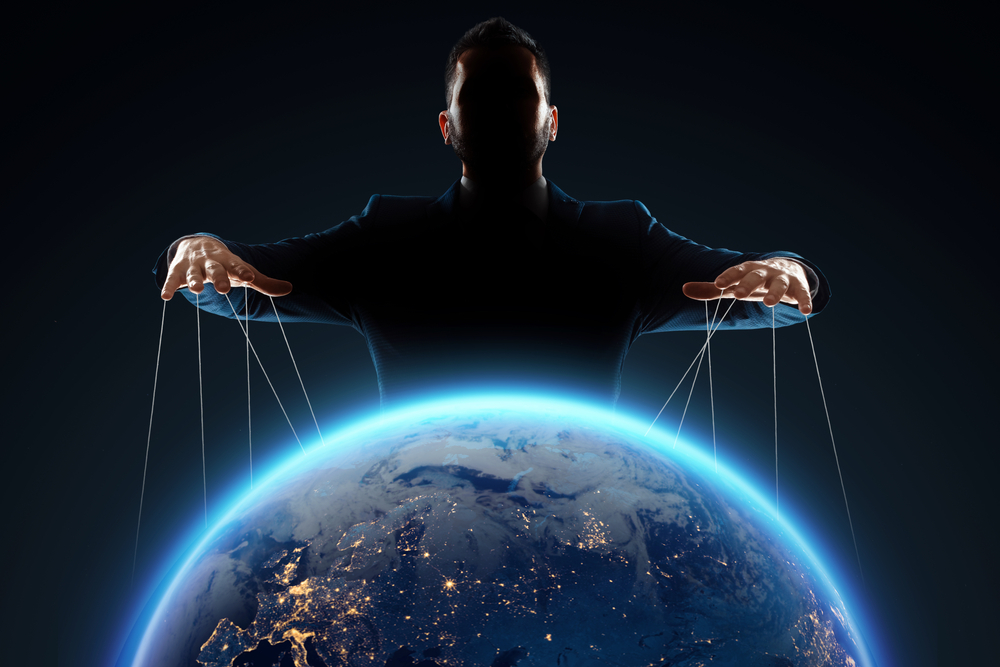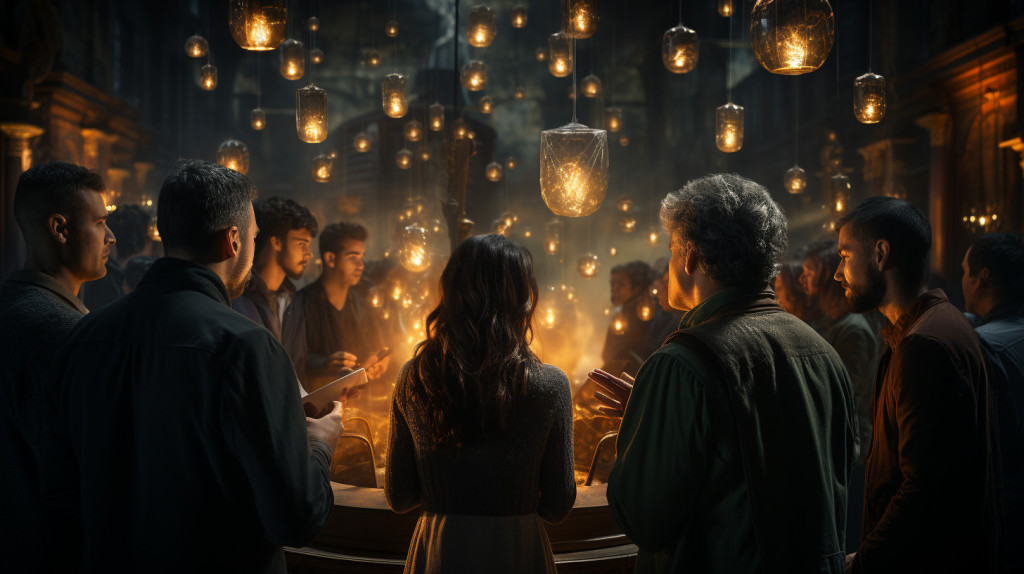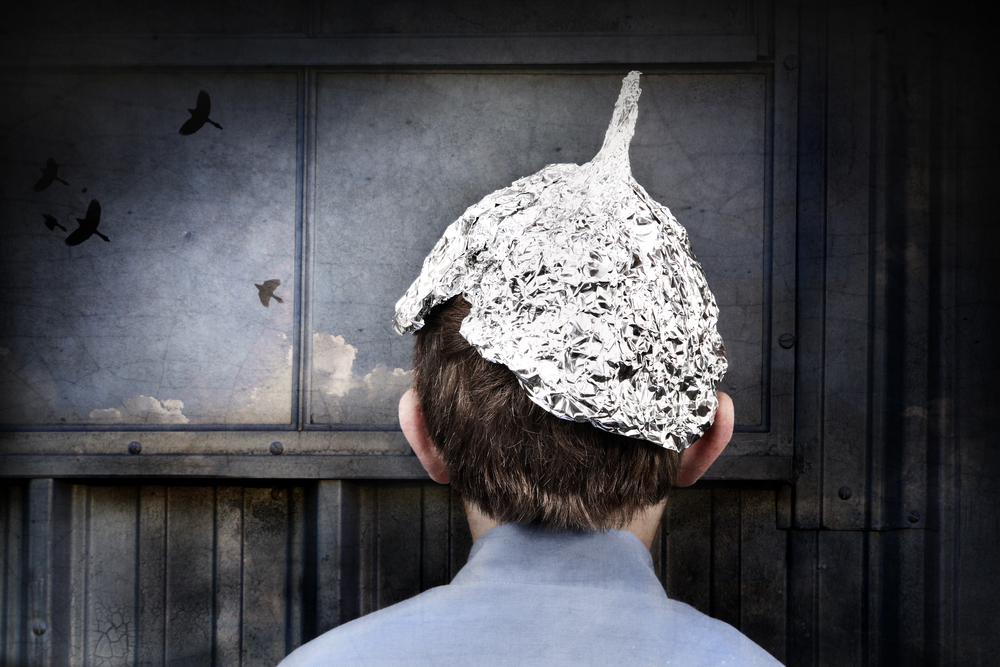Conspiracy theories are humanity’s response to a chaotic world. They are, after all, stories that conveniently connect disparate events with unproven and unprovable “facts”. They result from various psychological stimuli, such as motivations, cognitive biases, and social influences.
Why do some people believe that the moon landings were fake? Why do others believe that secret societies like the Illuminate control world events? Why do people believe that Earth is flat? What is it that drives individuals to embrace these alternate explanations, often in the face of overwhelming contradictory evidence? What attracts people to conspiracy theories?
In this article, we will explore the psychological factors that contribute to the widespread and growing belief in conspiracy theories. By delving into motivations, cognitive biases, and social influences, we can gain a deeper understanding of this phenomenon that continues to captivate minds worldwide.
The Fascinating Nature Of Conspiracy Theories

Conspiracy theories are a natural response to a chaotic world. They are, after all, stories that conveniently connect disparate events with unproven and unprovable “facts”.
Conspiracy theories give their believers a sense of control and understanding in uncertain times. Whenever we are faced with complex events, these theories often simplify explanations by attributing them to a small, secretive group with hidden motives. They create a coherent narrative that offers a sense of order and comprehension in a seemingly random world.
Moreover, conspiracy theories offer a means to question authority and challenge the status quo. They provide an opportunity to assert individual autonomy and critical thinking by seeking alternative explanations beyond the mainstream narrative.
Research suggests that people tend to believe in conspiracy theories when they feel anxious, powerless, or when they don’t trust authorities (e.g., the government). For example, during times of political or economic instability, people may find comfort in conspiracy theories that propose a clear villain or group responsible for their hardship.
Also Read: What Is The Backfire Effect?
The Role Of Cognitive Biases
Cognitive biases are referred to as mental shortcuts or patterns of thinking that deviate from rational judgment or logical decision-making. These biases often occur automatically and unconsciously, shaping how we make sense of incoming information. Cognitive biases can influence our thoughts, beliefs, and actions, including how likely we are to believe in conspiracy theories.
One such bias, for example, is confirmation bias. Confirmation bias, for example, leads us to seek, consider, and remember information that aligns with our pre-existing beliefs, while disregarding or dismissing contradictory evidence.
Once someone has formed a conspiracy theory or an alternative explanation of an event, they tend to stick to this narrative. The way they do so is by selectively choosing and accepting information that confirms their worldview, thus reinforcing their beliefs. This bias creates an echo chamber where like-minded individuals reinforce each other’s viewpoints, further entrenching their conspiratorial beliefs.

In a study published in 1987, participants were presented with information about a fictitious disease and asked to identify associated symptoms. The results showed that participants with strong initial beliefs about the disease selectively sought and processed information that confirmed their pre-existing notions.
They focused more on symptoms that were consistent with their beliefs and disregarded contradictory evidence.
This research demonstrates confirmation bias, whereby individuals tend to seek, interpret, and remember information that aligns with their existing beliefs, while downplaying or ignoring contradictory information.
Another relevant example of cognitive bias is illusory pattern perception, which drives individuals to perceive meaningful patterns or connections even in random or unrelated events.
People naturally seek patterns and connections to make sense of their surroundings. However, this bias can lead individuals to identify patterns related to the existence of a conspiracy theory, when none may exist. It can lead them to perceive hidden intentions or machinations behind seemingly unrelated events. For instance, many people “see” patterns in unrelated political events and interpret them as evidence of a larger conspiracy.
Social And Psychological Factors
Social dynamics and psychological factors also influence whether someone will believe in conspiracies or not. Research suggests that feelings of powerlessness, mistrust, and alienation from society can increase the likelihood of a person embracing conspiratorial beliefs.
When individuals feel disconnected or marginalized, conspiracy theories provide a sense of belonging and a community that shares and accepts their beliefs. These theories can offer a sense of empowerment and provide individuals with a way to challenge authority and assert their autonomy.

Furthermore, conspiracy theories often thrive within specific communities or online echo chambers. In these spaces, beliefs are reinforced and amplified through social influence. When individuals interact with like-minded individuals who validate their beliefs, it strengthens their own conviction in the conspiracy theories. Online platforms and social media play a significant role in the dissemination and reinforcement of conspiracy beliefs. They create echo chambers where misinformation can flourish and persist.
Also Read: Is It True That Lonely People Are Easy To Radicalize?
Real-World Impact
Conspiracy theories don’t just impact our personal well-being, but can also have far-reaching real-world impacts. This can also lead to dangerous consequences. For instance, the rampant of misinformation about vaccine safety, fueled by conspiracy theories, has contributed to declining vaccination rates and the resurgence of preventable diseases. This has directly led to the endangerment of public health and well-being.
Similarly, conspiracy theories that have denied climate change have hindered collective action and delayed effective responses to the environmental crisis. By spreading uncertainty and disseminating false information, conspiracy theories have hindered progress in addressing and effectively dealing with the urgent challenges of climate change.
How To Break Free From Conspiracy Theories

Understanding why people believe in conspiracy theories is essential for developing strategies to counter misinformation and encourage critical thinking. Here are some ways in which we can counter conspiracy beliefs/theories:
- Embrace critical thinking: Take the time to think critically and question the information you come across. Consider the source, evidence, and alternative perspectives before accepting or sharing claims.
- Become media-savvy: Develop the skills to assess media sources for credibility and bias. Fact-check information and rely on reputable sources for accurate news and information.
- Stay curious and open-minded: Be open to exploring different viewpoints, even if they challenge your existing beliefs. Cultivate a sense of curiosity and embrace the opportunity to learn and grow.
- Learn about cognitive biases: Familiarize yourself with common cognitive biases that can impact your thinking. Recognize how biases like confirmation bias can influence belief formation, and actively work to counteract them.
- Seek diverse sources of information: Diversify your media diet by seeking out a variety of reputable sources with different viewpoints. Avoid relying solely on sources that reinforce your existing beliefs.
It is essential to understand that conspiracy theories can have real-world consequences, such as hindering progress in addressing important issues like climate change. As a responsible citizen of the world, consider the broader implications before endorsing or spreading potentially dangerous theories.
How well do you understand the article above!

References (click to expand)
- van Prooijen, J.-W., Krouwel, A. P. M., & Pollet, T. V. (2015, January 12). Political Extremism Predicts Belief in Conspiracy Theories. Social Psychological and Personality Science. SAGE Publications.
- Leman, P. J., & Cinnirella, M. (2013). Beliefs in conspiracy theories and the need for cognitive closure. Frontiers in Psychology. Frontiers Media SA.
- Klayman, J., & Ha, Y.-. won . (1987, April). Confirmation, disconfirmation, and information in hypothesis testing. Psychological Review. American Psychological Association (APA).
- Whitson, J. A., & Galinsky, A. D. (2008, October 3). Lacking Control Increases Illusory Pattern Perception. Science. American Association for the Advancement of Science (AAAS).
- van Prooijen, J.-W. (2016, November 28). Why Education Predicts Decreased Belief in Conspiracy Theories. Applied Cognitive Psychology. Wiley.
- Del Vicario, M., Vivaldo, G., Bessi, A., Zollo, F., Scala, A., Caldarelli, G., & Quattrociocchi, W. (2016, December 1). Echo Chambers: Emotional Contagion and Group Polarization on Facebook. Scientific Reports. Springer Science and Business Media LLC.
- Jolley, D., & Douglas, K. M. (2014, February 20). The Effects of Anti-Vaccine Conspiracy Theories on Vaccination Intentions. (R. Tripp, Ed.), PLoS ONE. Public Library of Science (PLoS).
- Dixon, R. M., & Jones, J. A. (2015, March 26). Conspiracist Ideation as a Predictor of Climate-Science Rejection. Psychological Science. SAGE Publications.
